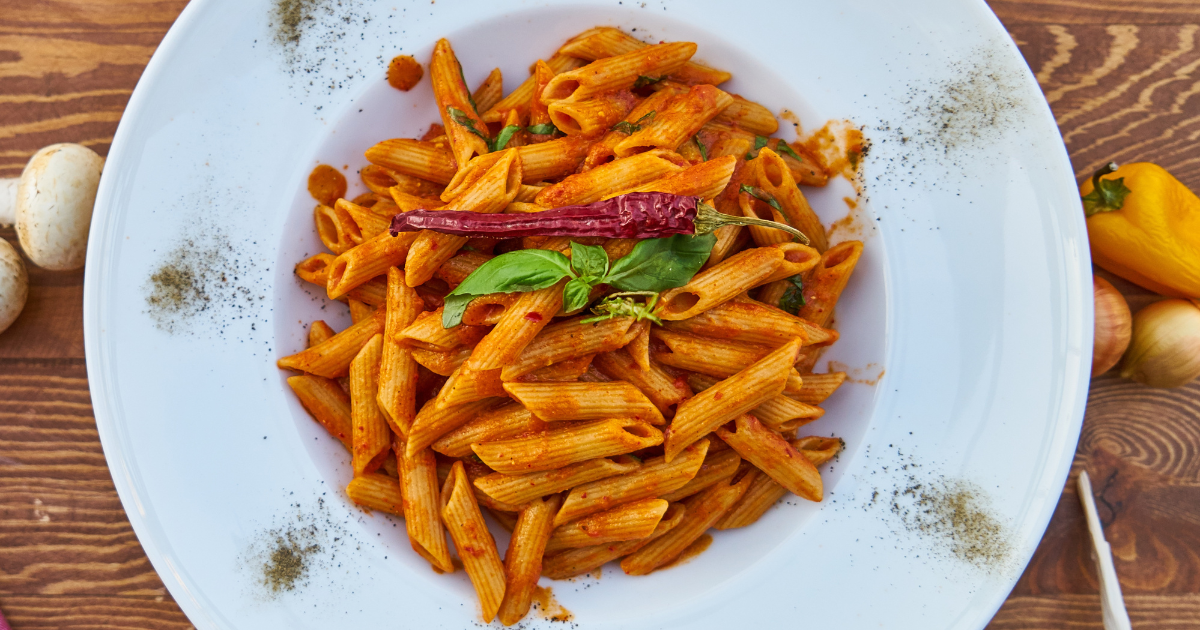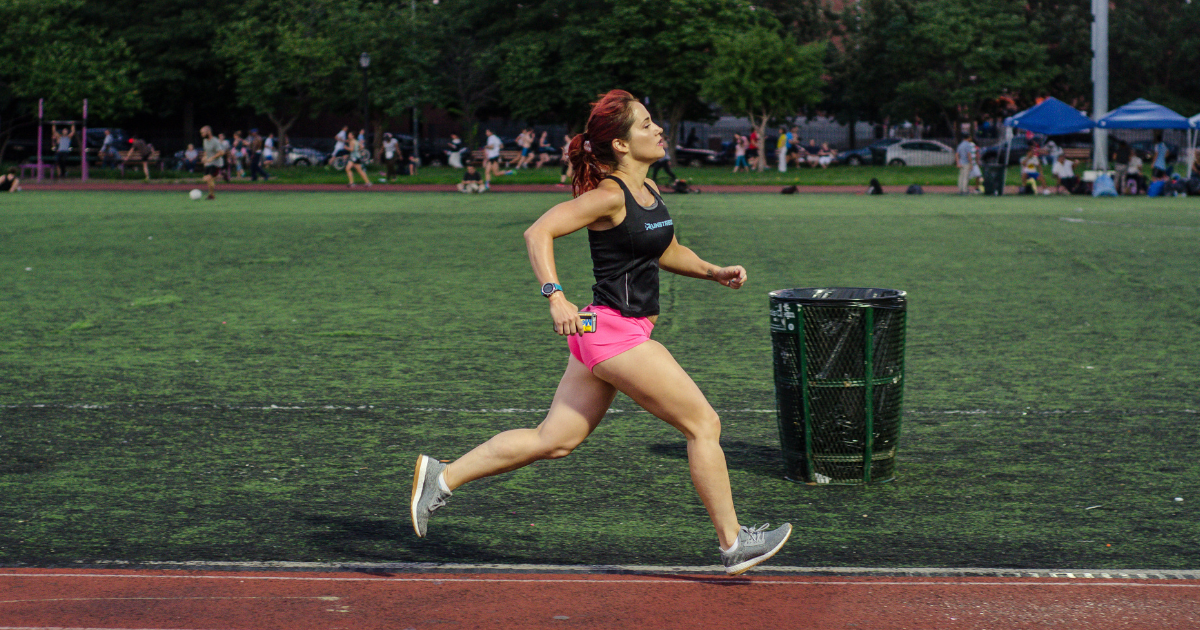When to Carb Load Before a Race - Complete Guide
Carb loading with pasta can help prevent hitting the wall on race day.
By Marnie Kunz,
Certified trainer and run coach
If you’re wondering when to carb load before a big race, this guide will give you guidelines on what and when to eat to run your best. If you’re running a long-distance race like a half marathon, marathon, or ultra-marathon, carb loading will help you have more energy on the run. As a runner, coach, and food lover, I have to say carb loading is one of my favorite pre-race rituals. However, eating too much of the wrong foods can have the opposite effect, slowing you down for your big race. This overview will go over how to carb load, the best food options for carbs, and more.
Related Post: When and What to Eat Before Running
What Is Carb Loading?
Carb loading is the practice of eating foods rich in carbohydrates in preparation for an endurance event like a long-distance cycling or running event. If you’re a runner, you’ve probably done some carb-loading rituals like eating pasta the night before a race. But carb loading is more than just scarfing down a pizza or getting pasta with friends, as there’s a science behind it.
Carbs are stored in your body as glycogen, which becomes a source of energy for longer-duration cardiovascular events like half marathons and marathons. When you are running for over an hour, your body starts to use up all your muscle glycogen stores, and carb loading can give you more reserve energy for long runs.
“Carb loading maximizes muscle glycogen reserves, which are one of the main sources of energy for endurance activities,” says registered dietitian Carol-Ann Robert. “By increasing glycogen stores, it delays fatigue and increases the duration of effort by up to 20%, leading to a potential performance boost of 2 to 3 percent.”
According to researchers, carb loading offers the most benefits for endurance sports that last over 90 minutes. For most runners, it takes longer than 90 minutes to run a half marathon, making races that are half marathon or longer good candidates for carb loading.
Who Needs to Carb Load?
Carb loading is helpful for endurance athletes like runners, cyclists, and triathletes. It’s especially useful for runners tackling longer races like half marathons, marathons, and ultra-marathons. Most athletes can benefit from carb loading for any race that lasts at least 90 minutes.
“Carb loading is recommended for events lasting more than 90 minutes,” Robert says.
Since carbs are your primary fuel source for endurance events, carb loading helps your muscles store more glycogen than usual, giving you extra energy on race day. Eating a carb-rich diet before your long-distance event can help prevent you from the dreaded “hitting the wall” when energy crashes in a half marathon or marathon.
Pancakes are good for carb loading.
How Much Carbs to Eat
Before we get into when to carb load, first it’s important to know how much carbs you need to eat. Endurance athletes should increase their carbohydrate intake and consume 5 to 6 grams of carbohydrates per pound of body weight for carb loading. This doesn’t mean you need to eat more calories than usual, just shift your eating to increase your carb intake and eat less fiber and fats.
In the final days leading up to your race, increase your carb intake each day, maxing out at 70 percent to 90 percent carbs in the two or three days before the race, advises the International Sports Sciences Association. Aim for about 5 grams of carbs per pound of body weight.
When to Carb Load Before a Half Marathon
If you’re carbohydrate loading for a half marathon, you can start adding more carbs to your diet two to three days before your race. Also, consider your general half marathon time, as runners who finish in under 90 minutes won’t need to carb load as much as those who run the race in more than 90 minutes.
“For events closer to 90 minutes, 1 to 2 days of carb loading may suffice,” Robert says. “For longer races, such as marathons, carb loading can be extended to 3 to 4 days.”
When to Carb Load Before a Marathon
Start to carbo load for a marathon three to four days before your race. Pair your carb loading with tapering so your muscles can store all the extra energy while you have a reduced training load. (If you train too hard in the carb loading phase, your body will use up the extra carbs).
Best Foods for Carb Loading
Foods that are rich in complex carbohydrates are the best options for can loading. Try to choose low-fiber foods as they are the easiest to digest as your body prepares for race day. High-fiber foods can cause digestion issues on race day. Similarly, high-fat foods can cause digestion issues, so aim to keep your fat intake down as you carb load.
Try these carb-rich foods for carb loading.
Here are some great sources of high carbohydrate foods to help you carb load:
White rice
Low-fiber fruit like bananas, oranges, cherries, and fresh fruit juices (without added sugar)
Applesauce or apple butter
Pasta
Pancakes (syrup is ok in moderation, but don’t overdo it because of the high sugar content)
Pretzels
Low-fiber cereals
Potatoes
White bread
Yogurt
Toast
A sample meal for carb loading may look like a sandwich with low-fat cheese, a banana, low-fat yogurt, and pretzels for a snack. Some foods that are high in protein and carbs such as yogurt can give you a boost of nutrients to help fuel your run and nourish your muscles.
Avoid high-fat, high-fiber, and high-sugar foods when carb loading.
High-Fiber Foods to Avoid
Oatmeal
Quinoa
Lentils
Chia seeds
Beans
Whole grains like whole wheat bread and brown rice tend to have too much fiber, so eat them in moderation (only if you’re already used to them)
High-Sugar and High-Fat Foods to Avoid
Donuts
Creamy sauces
Dessert foods like cakes and cookies
Fuel on the Run
No matter how much you carb load, you will also need some fuel on the run during your race to prevent fatigue and energy crashes after more than 90 minutes of running. Practice taking running fuel (such as an energy gel, gu, or chew) on your long runs in training so you have one that works well for your digestive system on race day.
Related Post: Running Fuel Guide to Help You Run Better
Staying hydrated is also critical to performing your best in a long-distance race. Bring hydration on race day or stop every mile or two at aid stations for refueling. For long races, you’ll need water and a sports drink or electrolytes formula to replenish the electrolytes your body loses through sweat.
Related Post: Running Hydration Guide and Tips
Run Your Best Race
Fine-tuning your nutrition will help you hit your peak performance on race day. Knowing when to carb load and what to eat will give your body energy reserves and can prevent you from hitting the dreaded wall in your race. Remember to also bring hydration and fuel on your long runs and race day so you stay fueled and give your body the best chance at running well.
If you have more questions about what to eat for running your best, consult with a sports nutritionist for help.
For a training plan to help you crush your next race and hit new levels of fitness, visit the Runstreet Training Center and I’ll be happy to help you. Follow and tag @Runstreet on Instagram to share your training and get cheered on.
Happy running - and eating - to you!
Related Posts: The Vegan Athletes’ Guide to Plant-Powered Nutrition, Nutrition for Runners Guide from a Dietitian
Marnie Kunz is a NASM-certified trainer and USATF- and RRCA-certified running coach, dog lover, Akita mom, and writer based in Brooklyn, NY. She is the founder of Runstreet.





